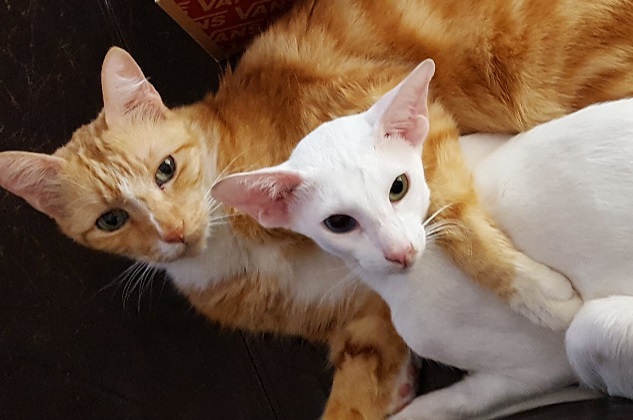February is National Cat Health Month
Welcome to February, which happens to be National Cat Health Month. While we should always be mindful of the health and well-being of our pets, February reminds us not to forget about our cats! Statistics from the American Veterinary Medical Association indicate that dogs in the United States visit veterinarians more frequently than cats. There are likely a number of reasons for this, not the least of which is the fact that cats hide pain and illness very well.
Cats are Masters at Hiding Pain and Sickness
Most of us cat owners know that cats tend to appear slightly less domesticated than dogs (or maybe they are just too smart for their own good!). So it comes as no surprise that some of their survival instincts remain intact. One such instinct is this tendency to hide anything that a potential predator may portray as weakness. By masking weaknesses, the cat does not draw unwanted and potentially dangerous attention.

Signs that Something may be Wrong
The good news is, there are some pretty clear signs to look out for to determine if something may be wrong with your cat. One sign of illness in cats is a change in activity level. Many cats will hide when they are not feeling well, which goes back to their instinct to not attract attention from predators. A sick or painful cat might play less and may not be able to jump as high as before. Some other things to look for include changes in appetite, changes in litter box habits, and of course more obvious signs like vomiting, diarrhea, and limping.
Why Veterinary Care for Cats is Important
Just like dogs (and people!), routine check-ups are important to maintain a cat’s health. Even if nothing appears to be wrong with your cat, these routine examinations by your veterinarian may uncover some ailment that your cat has been hiding. In the same way, routine bloodwork can help your veterinarian monitor for diseases such as kidney failure. In diseases like kidney failure, early diagnosis and treatment leads to a better prognosis.
How VetStem Has Helped Cats
There are multiple feline diseases, in limited numbers, that have been successfully treated with VetStem Cell Therapy. Some of these diseases include osteoarthritis (no, it is not just a dog problem!), kidney disease, gingivostomatitis, and inflammatory bowel disease (IBD). For more detailed information about using VetStem Cell Therapy for these conditions, check out our previous blog. If you are interested in stem cell therapy for your cat, we encourage you to speak to your veterinarian or contact us for a list of VetStem providers in your area. February is the perfect month to check in with your cat’s health!

